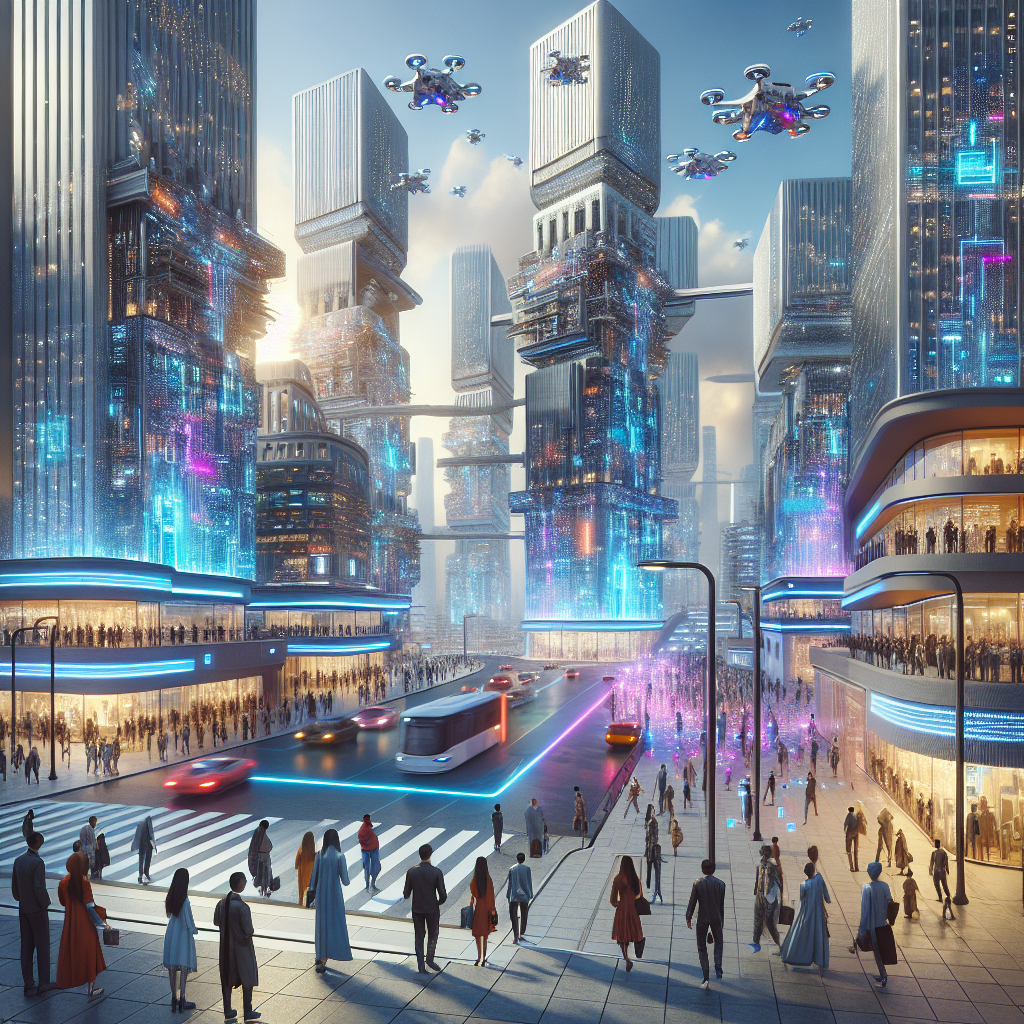The AI Race: A Zesty Dive into Geopolitical Implications and Technological Advancements
Introduction: The New Era of AI
Artificial Intelligence, once the realm of science fiction, is now reshaping our world at a breakneck pace. From the humble beginnings of OpenAI's GPT-2, which could string together plausible sentences, we've leapt to GPT-4, capable of writing sophisticated code and solving complex mathematical problems. This rapid evolution, often dubbed as an "intelligence explosion," carries profound implications, not just for technological advancement but for geopolitical dynamics. As we stand on the cusp of even more transformative changes, the stakes couldn't be higher.
The Two Paths to AI Supremacy
AI's journey towards becoming a cohesive and coherent agent involves learning new tokens and error correction mechanisms. Imagine driving a car—most of the time, you're on autopilot, navigating familiar routes smoothly. But when you hit an unexpected construction zone, your full attention shifts to adapt and overcome the obstacle. Similarly, AI needs to learn how to plan, critique drafts, and process millions of tokens to think more effectively.
The race to develop AI agents follows two primary paths. The first is the scaling approach, which emphasizes increasing computational power to achieve greater reliability. The second is the "unhobbling" approach, where AI learns to process systems and apply millions of tokens cohesively. As AI progresses, these agents will become integral to various sectors, pushing the boundaries of what machines can do.
The Geopolitical Chessboard: AI as a New Player
AI's impact extends far beyond technology; it is rapidly becoming a pivotal element in global power dynamics. The United States and China are at the forefront of this race, each striving to secure AI supremacy. With trillion-dollar companies like Microsoft capable of issuing massive bonds to fund AI research, the economic stakes are enormous.
However, the geopolitical implications of AI development are multifaceted. Countries like the UAE, already pouring money into AI, represent potential allies or competitors. The argument often posited is that if the West doesn't collaborate with these nations, they will inevitably turn to China. This creates a complex web of alliances and rivalries, reminiscent of the Cold War era but with far more advanced technology at play.
The March 2020 Moment: Global Reactions to AI Breakthroughs
Reflecting on the global response to COVID-19 offers insights into how the world might react to significant AI advancements. The pandemic's onset saw unprecedented measures, with governments spending trillions and economies shutting down. Similarly, a major AI breakthrough could trigger massive economic and political shifts.
Imagine a scenario where AI capabilities leap dramatically, akin to the transition from bayonets to fighter jets within a few years during the 20th century. Such rapid advancements would necessitate government intervention and strategic planning on an unparalleled scale. The potential for disruptive innovation in AI could lead to a "Manhattan Project" for AI, with governments and corporations racing to harness and control its capabilities.
The CCP and AI: A Strategic Imperative
China's approach to AI development is deeply intertwined with its national strategy. The Chinese Communist Party (CCP) views AI as a critical component of its historical mission to rejuvenate the nation. For China, AI represents not just technological progress but a means to solidify its global influence and power.
However, the rise of AI also brings concerns about surveillance and control. The CCP's potential use of AI for perfect lie detection, mass surveillance, and suppression of dissent poses significant ethical and political questions. A world where AI is used to enforce authoritarian regimes could stifle pluralism and innovation, creating a locked-in system of control that lasts for generations.
Cooperation or Competition: The Path Forward
The debate over whether to approach AI development from a cooperative or competitive perspective is ongoing. While some advocate for collaboration with China and other nations to ensure mutual benefits, others argue for a more hawkish stance, emphasizing the need to win the AI race to secure national interests.
The ideal scenario involves balancing these perspectives. Forming broad coalitions that include democracies and other regimes, offering benefits and sharing AI advancements, could foster a more cooperative global environment. However, the reality of espionage and state-level competition means that strategic caution and robust security measures are indispensable.
Relevant Links for Further Reading
Conclusion: Navigating the AI Frontier
As AI continues to evolve, the world stands on the brink of unprecedented change. The technology's potential to revolutionize industries, economies, and societies is matched by its capacity to disrupt global power structures. Navigating this new frontier requires not only technological innovation but also strategic foresight and international cooperation.
The road to AGI (Artificial General Intelligence) is fraught with challenges and opportunities. Ensuring that AI advancements benefit humanity as a whole, rather than exacerbating geopolitical tensions, will be the defining task of our era. As we move forward, the lessons learned from history, the importance of ethical considerations, and the need for a balanced approach will guide us through this transformative period.
By embracing both competition and cooperation, we can harness the power of AI to create a future that is equitable, prosperous, and secure for all.
Matthew Bell
matthewrobertbell@gmail.com
Related News
- America's AI Race: The Battle for Technological Supremacy
- The Future of Global Power: Navigating the AI Arms Race
- The AI Takeover: A Tantalizing Glimpse into a Future Dominated by Machines
- Navigating the AI Tsunami: A Deep Dive into the Currents Shaping Our Digital Future
- The Tipping Point: Navigating the Uncharted Waters of Advanced AI
